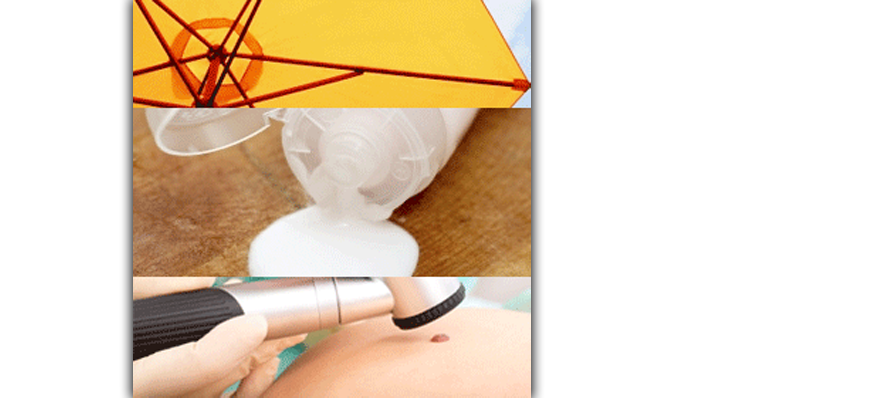As frustrating as this skin condition can be for those afflicted with it, even difficult cases are better understood than ever and success rates high. A basic understanding of acne can help you get started on clarity.The Acne Cycle: What Goes On When I Have A Pimple?What Causes Acne? What To Avoid?How Do I Effectively Treat Acne?
WHAT IS ACNE?
Acne (also called “pimples”) is a kind of folliculitis. Folliculitis is a general term for clogged and irritated hair follicle, which is the same as clogged and irritated pore. The term folliculitis is usually reserved for very inflamed pores. The term acne is more commonly used for less aggravated conditions. Basically, acne refers to skin bumps or lesions resulting from clogged and irritated pores.
Comedonal acne:
Blackheads, whiteheads, normal-sized pimples that feel like theyre closer to the skins surface. Comedonal acne is often caused by external factors, such as comedogens or pore-clogging ingredients in cosmetics.
Cystic acne:
Very large pimples that are inflamed and feel “deeper” in the skin. If you have cystic acne that is widespread, the cause is almost always internal, such as medicines, vitamins, hormonal changes, stress, certain foods and drink, or lack of sleep.
In both cases, a diagnosis made by a dermatologist is most accurate as certain lesions may look like acne but be something else. A proper diagnosis is always the first step towards clarity.
THE ACNE CYCLE: WHAT GOES ON WHEN I HAVE A PIMPLE?
INFLAMMATION
Excess oil, dirt, comedogenic cosmetic residue, an allergen or irritant, or an ingrown hair clogs and irritates the pore.
REDNESS + SWELLING
A swollen, red bump begins to form from the irritation.
INFECTION (SECRETION OF INFECTED MATTER)
Bacterial infection sets in, showing itself as a yellowish secretion.
INFECTED MATTER BREAKS THE SURFACE
At the end of the cycle, the infected matter breaks through the skins surface where it is expunged or “thrown away”.
Quick Tip: REMOVAL
- Do not pick at or pop your pimples to remove them. You risk infection and scarring.
- Get a proper facial instead. Make sure that the removal of pimples is done not by hands or fingers, but with a proper comedone extractor. Ideally, the person performing the procedure should be a dermatologically trained and licensed esthetician, registered nurse or similarly-qualified attendant.
- VMV HYPOALLERGENICS® clinically-sound Vx Facials and Skin Services were created and are regularly audited by boarded dermatologists, and can go a long way towards purging pores, particularly when combined with your take-home anti-acne VMV regimen.
WHAT CAUSES ACNE? WHERE DOES IT COME FROM? WHAT DO I AVOID?
1) RESIDUE
Excess oils, dirt, pollution and product residue that are not thoroughly cleansed away can clog pores, irritating them, and causing acne. Allergens may not clog pores the way comedogens can but they can irritate pores and cause infection and acne.
2) HORMONES
Teen-agers going through puberty, menstrual cycles, pregnancy, other hormonal changes.
3) STRESS
Besides agitation and tension, this includes sleep deprivation and poor overall health. If your body and mind are stressed, your skin cannot fight off infection as well as it can when you are well rested, eating healthily, exercising regularly and generally at-ease.
4) CERTAIN DRUGS, VITAMINS, NUTRITIONAL SUPPLEMENTS, HORMONE THERAPIES
Certain drugs, like some neurological and asthma medications, are known to cause acne. Vitamin B12 and some other nutritional supplements, too. Read your medicines information insert carefully or consult your physician about a particular medicines tendency to cause acne.
5) COMEDOGENS
Ingredients in cosmetics that clog pores are called “comedogens.” Even products that seem unrelated to skin can cause acne. For example, some shampoos, conditioners, and other hair products contain comedogenic ingredients. These can trickle down the face and neck, especially with perspiration, to clog pores and cause acne.
Similarly, some spa products like heavy body oils stay on the skin for long periods of time. If these products are comedogenic, they can clog pores.
6) ALLERGENS and IRRITANTS
If a substance is not comedogenic but is irritating (fragrance, even natural fragrance, is a top allergen, for example), it can irritate pores, causing infection, and leading to clogged pores and acne.
Harsh abrasives in certain scrubs can also irritate the pore and cause acne. On the other hand, some scrubs may contain mild abrasives but be used too aggressively—this is why scrubbing the skin too frequently or vigorously can also worsen acne.
7) GENES
If your family members had acne, you may develop it, too. As with all medical conditions and as a good health practice in general, remember that prevention and pre-emptive therapy are as important as (sometimes even more important than) therapy—it is usually better to prevent a condition or lessen its severity than to wait to treat a full-blown problem.
If acne runs in your family, starting treatment early can prevent the problem or help reduce its intensity. If you think you are genetically-prone towards acne, start preventing it early. Sleep well, exercise regularly, eat healthily, and try a pre-emptive therapy (VMV HYPOALLERGENICS® SuperSkin Care can be started at age 9).
8) HALOGENS
Halogens are common chemicals that can cause acne. They include:
- Bromides: found in some cough syrups, asthma medication, sleeping pills, chocolate.
- Chlorides: found in some mouthwashes and swimming pool water.
- Fluorides: found in some toothpastes and other oral care products.
- Iodides: found in salt, seafood, B12 vitamins, processed foods.
Halogen acne often appears around the mouth and chine and is also called peri-oral dermatitis.
If you have acne around the mouth and/or chin:
- Check if you are ingesting or using any of the items listed above. If so, cease or lessen exposure and intake.
- Switch to oral hygiene products without fluoride, chloride, dyes or flavors, such as VMV HYPOALLERGENICS® Essence Skin-Saving Toothpaste which is made for peri-oral dermatitis.
9) FUNGUS
Acne on the body can be pityrosporum folliculitis (PF, or “Sweat Acne”) which is caused by a fungus called pityrosporum that feeds on sweat. Switching to non-comedogenic products for hair and body products can help. So can active therapy with VMV HYPOALLERGENICS® Id Beta-Hydroxy Acid + Monoglyceride Clarifying System, particularly Id Sweat Acne + Overall Antibacterial Monolaurin Gel.
Id Monolaurin Gel is clinically proven to be as effective as popular anti-fungal treatments for PF (in studies, it showed 100% efficacy in clearing PF. But because it is so gentle to skin, it can be used for longer periods of time for sustained therapy—this is important as PF is notorious for recurring when therapy is stopped. Furthermore, Id Monolaurin Gel keeps skin cool and matte to help prevent sweating and, consequentially, the proliferation of the pityrosporum fungus. As with all skin conditions, we recommend that you see a dermatologist for proper diagnoses and treatment options.
10) INFLAMMATION
More and more research is proving the link between various types of inflammation and various diseases in the body, including acne. Reducing the causes of inflammation in the body can contribute to the reduction of acne.
What are examples of pro-inflammatory practices? Sleep deprivation (less than 7-8 hours each night), eating processed foods (chips, candies, fast or junk foods, many foods and drinks that come pre-packaged), repeat irritations to the skin (from allergens and comedogens), lack of exercise, regular exposure to skin-damaging sun and light.
The good news? Committing to a more anti-inflammatory lifestyle can help reduce acne and improve your overall health.
HOW DO I EFFECTIVELY TREAT ACNE?
1. Diagnosis:
- Is what you have, in fact, acne? Many acne-like lesions can actually be something else and may therefore not respond to traditional acne treatments.
- If you do have acne, what kind? This is fundamental as different types of acne respond to different types of treatment.
- What is causing the acne? This is important because, if your skin is consistently exposed to the cause of the acne, even the best therapy can fail. As with most health concerns, combining effective therapy with consistent prevention can significantly increase your chances of success.
2. Prevention, Treatment + Facial Regimen:
Once you have identified the type of acne you have and its causes, an effective topical treatment + prevention + facial regimen can follow.
For cystic acne, this may include other internal management such as certain drugs and improving your sleep habits, stress management and diet and exercise.
If you would like to explore a VMV HYPOALLERGENICS®regimen, click:
- Id Anti-Acne Regimen for more advanced and targeted acne therapy for face + body
- Spring Cleaning SuperSkin Care for Oily Skin for broader care with a focus on acne
- Hydra Balance SuperSkin Care for Combination Skin for broader care and intermittent acne
To learn more about VMV HYPOALLERGENICS® preventive products, see:
- Essence Hair, Body + Bath Care
- Essence Skin-Saving Toothpaste
- Skintelligent Beauty Makeup
- Fawn and Launder Hypoallergenic Laundry Shampoo
To learn more about VMV HYPOALLERGENICS® clinically-sound Vx Facials and Skin Services, click here.
3. Consistency:
Stick to your regimen for best results.
Consistently using the right skin care over several years can improve your skins internal structure, increasing its natural health and ability to fight acne.
An ideal anti-acne regimen gives your skin much more than just acne therapy. It firms up the skin, prevents wrinkles, evens-out skin tone, lessens pore size, reduces inflammation, and keeps skin strong, healthy and constantly regenerating.
Click here to learn how hypoallergenicity can help with acne concerns.
Click here to read about stress, inflammation, acne and other skin concerns.
Click here to learn about setting skin goals.
Click here for simple checklists to help you stick to your new skin resolutions.
Click here for more on clinically-sound Vx Facials + Skin Services to boost your anti-aging regimen.
Click here to learn more about the VH-Rating System.
Click here for tips on selecting a dermatologist.





